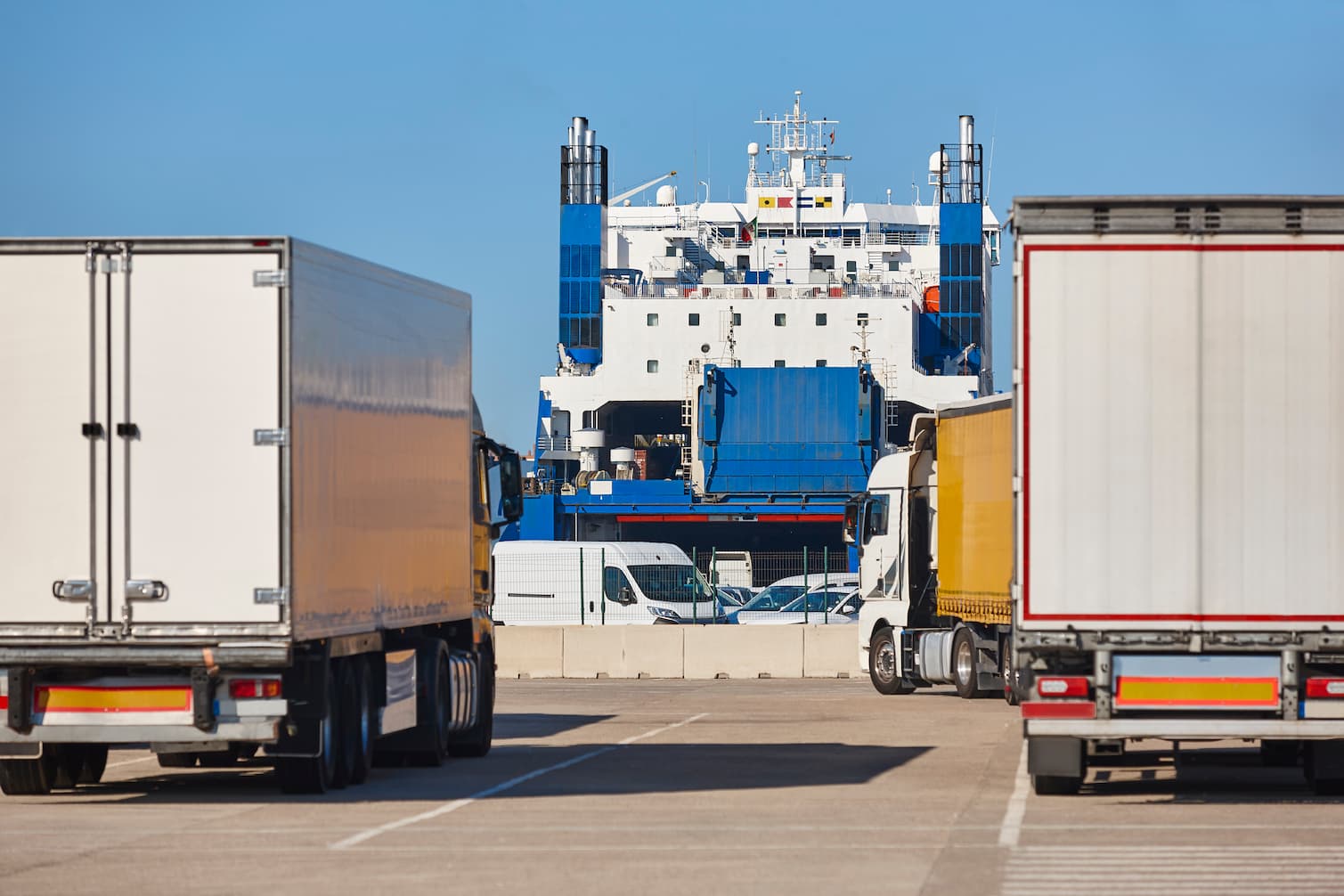The UK’s decision to leave the European Union has caused changes in the logistics market. What does the transport of goods between the UK and Poland look like after Brexit and how to plan supply chains between Poland and the UK to minimise costs?
With the UK leaving the European Union, the country became a ‘third country’ for Poland in transport and goods have to be transported in customs transit. After Brexit, the islands left the European Economic Area (EEA), controls reappeared at the borders, the waiting time for goods to enter (and leave) has increased significantly Currently, customs procedures do not affect transport times. It takes place smoothly so this mention can be omitted, and the number of documents needed to legally import and export goods to and from the Islands has multiplied significantly.
*ASL is a logistics company that helps organise the formalities for customs, transport and storage of goods. We prepare shipping documents, give full monitoring and advise on organising import/export. We offer general cargo by road, sea and air, as well as full-load international (and domestic) transport, always at the lowest prices.
Spis treści
ToggleCarriage of goods by road to and from the UK after Brexit – our company helps organise the formalities
TiRs and other cars transporting goods by road can be stopped by the UK Border Agency to check customs documents, the driver’s entitlement, to check the technical condition of the vehicle, as well as the conformity of the load being transported with the transport documents.
When transporting goods to and from the UK from Poland and other EU countries, transport clearance, opening of transit, closing of transit, and import clearance must be carried out. Everyone involved in the supply chain regardless of which way they are going) must have a GB EORI number.
Transport to the UK – requirements for drivers (code 95, GMR number)
Drivers carrying our cargo, moving within the UK, must be ready at all times to show the Code 95 to the UK services (Code 95 is very rarely used. It is better to replace it with the generic name of Certificate of Professional Competence for Drivers ( CPC ) entered on the driving licence or the relevant entry certifying that they are a professional driver, recorded on the driver’s qualification card.
Over time, the need to register with GVMS, the goods vehicle service system, was also introduced. This applies to any vehicle carrying freight that has entered the UK from abroad and wishes to deliver goods to a consignee located within the UK. The exporter/agent/shipper should provide the haulier with all the customs and other route documents that will be required for the driver to declare That we have registered with the GVMS system, the UK services find out as soon as we cross the border. (Some or all of the documents prepared can be sent digitally so that an individual number can be generated in advance – we must then have an individual GMR number generated for us, which certifies that we have made a full customs declaration. To obtain this number, it is necessary to create a UK Government Gateway account and register there. For this to be possible, it is necessary to obtain an EORI number issued to Polish carriers by the National Tax Administration. ASL as a logistics company provides a comprehensive, compliant transport service from EU countries to the UK – contact our staff for details of a quote for your individual case!
Freight transport to the UK – cabotage ban
In the course of carrying out a number of changes associated with the UK’s gradual exit from the European Union, the rules relating to cabotage have tightened. At the end of 2022, changes to the regulations came into force, according to which cabotage operations can be carried out within the UK provided,Each journey can include up to 2 cabotage operations in the UK , provided that they are carried out after a journey with a load from the EU and within 7 days of unloading in the UK . that the car has entered the islands with the imported goods, with only two operations allowed within 7 days. Transport operations can only be carried out entirely with the same vehicle (or combination of vehicles).
There have also been changes when it comes to intermodal transport. Here, the British have banned the receipt of goods using trailers that are unregistered in the UK. It is also not possible to access the loading and unloading of intermodal freight more than 25 km from the British coastal border.
Transport to the UK after Brexit – changes in 2024
As of 30 April 2024, changes to the way border controls are carried out on goods entering the UK from European Union countries came into force. The UK has set up Border Control Posts (BCPs) where animal products, plants and plant products defined as medium risk are inspected.
Summary – changes in transport after Brexit
The UK’s exit from the European Union has not impeded imports and exports (on the contrary – according to indicators, imports and exports between the UK and EU countries are growing year on year), but it has significantly increased the costs of transport, warehousing, as well as indirect costs related to transport (companies must, for example, employ additional staff to handle transport in its new form) and made the whole process more complicated. ASL is perfectly positioned to navigate the meanders of post-Brexit logistics – also for non-standard goods, i.e. transport of medicines to and from the UK, transport in the food industry, or transport of machinery, bulky items, electronics and non-standard goods. Contact us and quote for the transportation of your cargo quickly!

 Contact
Contact 
